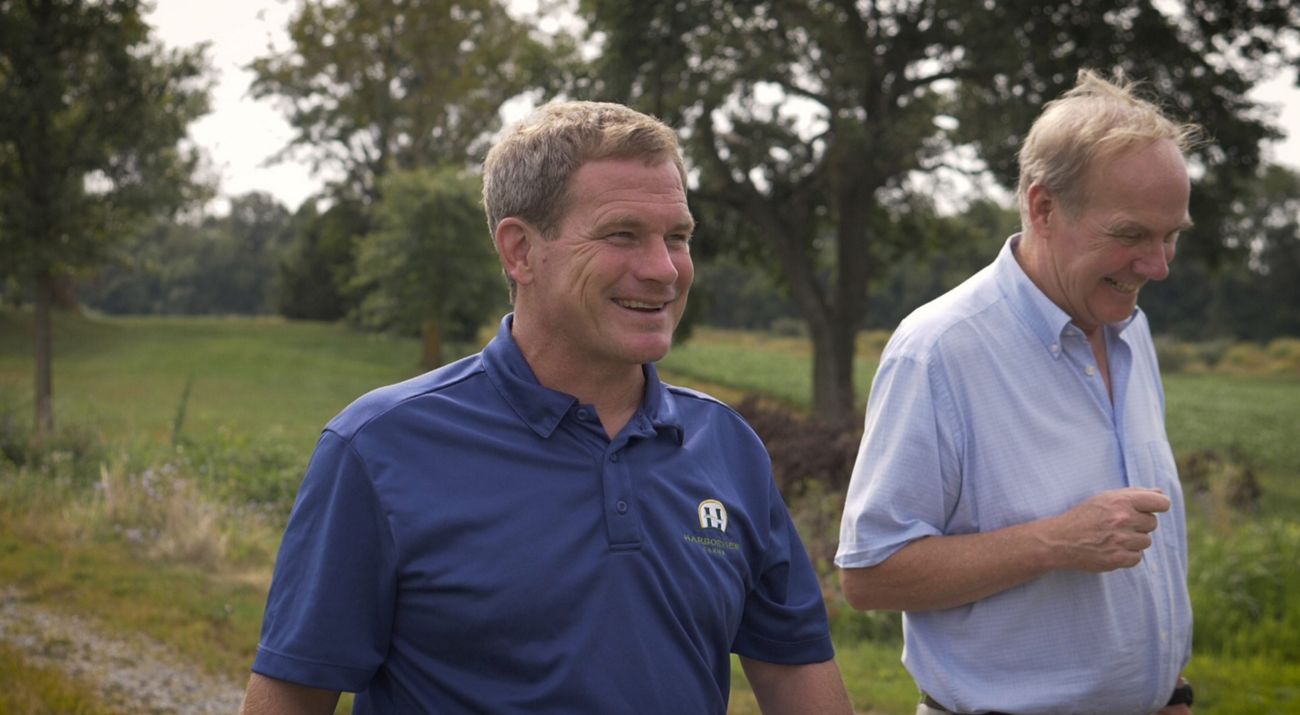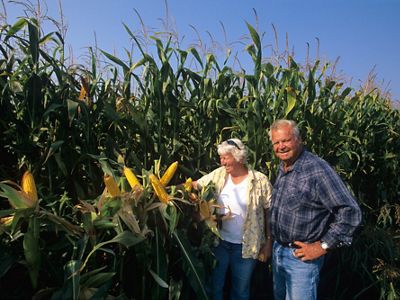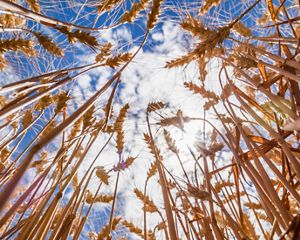
The Important Relationship Between Farmers and Non-Operating Landowners
Everyone knows we need clean air and water, but we don’t think as much about the soil beneath our feet—and that’s a big mistake. Soil is literally the foundation of all civilizations, of life itself even; we grow 95 percent of the food we eat in the soil. Healthy soils are also crucial for maintaining clean water supplies and creating resilience to extreme weather events. With farming and ranching occurring in all 50 of the United States, there is an opportunity to invest in our nation’s soil health—and ultimately in the well-being of our farming families and the sustainability of our food systems. It starts with collaboration throughout the supply chain—including between the farmer and the landowner.
Many farmers don’t own the land they work, but instead rent from non-farming landowners, or non-operating landowners (NOLs). NOLs own 62 percent of Midwest farmland, including up to 80 percent of land in certain counties. NOLs and their relationships with the farmers to whom they rent land are vital to achieving wide-scale adoption of soil health and nutrient management practices across U.S. croplands.
To better understand the relationship between farmers and NOLs, The Nature Conservancy and Purdue University are conducting a multi-year research and trial program to understand the challenges and opportunities faced by both parties when it comes to adopting soil health and nutrients practices on rented land in Illinois, Indiana and Iowa. Some 3,700 landowners are engaged in the study. Read more in an article by Farm Journal.
The TNC-Purdue study is just part of a suite of work over a 12-month period to better understand non-operating landowners and the barriers they and their farmers face in aligning management objectives, as well as potential opportunities to improve soil health outcomes on rented farmland. Other research includes a workshop series of NOL advisors and farmland stakeholders, and surveys conducted by American Farmland Trust (AFT).
Conservation on Rented Farms
Based on this body of research, it is clear there is a lot of opportunity to bring soil health more squarely into conversations between NOLs and farmers. NOLs trust their farmers, have longstanding relationships, and can help support farmers in using conservation agricultural practices that can benefit soil health. A new report from TNC, “Non-Operating Landowners and Conservation on Rented Farmland,” cites the research led by American Farmland Trust that lays out both the extent of this opportunity and the complexity of increasing conservation practices on rented farmland.
Conservation on Rented Farmland
To continue building on this work, TNC is working with Trust In Food™, a division of 142-year-old Farm Journal, to support increasing adoption of conservation agriculture practices across the Midwest. During the scope of the joint project throughout 2019, Trust In Food™ will support TNC’s work to promote soil health practices to NOLs and their famers in the states of Illinois, Indiana and Iowa, where NOL farmland ownership is particularly high.
The project is designed to better understand the relationships between NOLs and farmers and provide the tools and resources necessary to help both parties collaborate to ensure soil health practices are part of their business relationship. The insights Trust In Food™ will provide as part of this project will support work across the food value chain to accelerate adoption of conservation agriculture practices by:
Related Reading
An Indiana farm family works with landowners to expand conservation on rented lands.
One Family's Conservation Ag Journey- Examining the business relationships between NOLs and their farmers;
- Identifying like-minded NOLs and farmers that are top prospects for conservation practice adoption;
- Offering a deeper understanding of the reasons NOLs and farmers choose to engage—or avoid engaging—in soil health practices on NOL-owned farmland; and
- Providing strategic soil health messages that will help stakeholders across the agricultural supply chain voluntarily increase adoption of soil health practices on rented farmland.
Together, NOLs and their farmers have the power to transform the agriculture system, ensuring a healthier landscape for growing our food, safeguarding our drinking water supplies and creating a sustainable food system for a growing world. By partnering to adopt conservation agriculture practices, NOLs and farmers are not only helping their bottom line, but they’re ensuring a healthier world for us all.

The Nature Conservancy
The Nature Conservancy is a global conservation organization dedicated to conserving the lands and waters on which all life depends. Guided by science, we create innovative, on-the-ground solutions to our world's toughest challenges so that nature and people can thrive together. We are tackling climate change, conserving lands, waters and oceans at an unprecedented scale, providing food and water sustainably and helping make cities more sustainable. Working in over 70 countries and territories, we use a collaborative approach that engages local communities, governments, the private sector, and other partners.
Trust In Food™
For more than 140 years, Farm Journal has served farmers, ranchers and growers with information, education, independent test plot research and insights to help them grow their businesses. Now, its Trust In Food™ division will support industry stakeholders with data-based strategic communications insights to help farm families thrive over the next century and beyond. Trust In Food™ also is a partner on separate conservation agriculture projects with organizations including The Walton Family Foundation and the National Fish and Wildlife Foundation.




